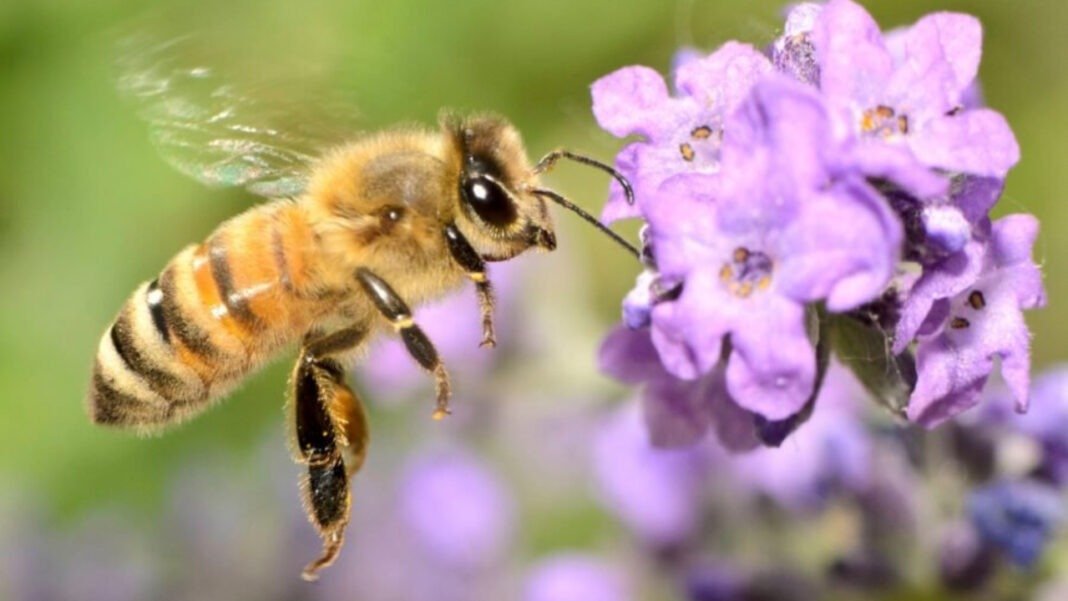By: Aubaid Ahmad Akhoon & Dr. Khalid Mir
The entire universe is engulfed in the blessings and provisions of Allah, and every sign and blessing is a perfect means to attain closeness to Allah, as stated by Allah in the Holy Quran (“Say, ‘Travel through the land and observe how He began creation. Then Allah will produce the final creation. Indeed Allah, over all things, is competent.’” (Quran 29:20)
I have been associated with the field of education for many years and have always had a desire to learn. I pursued my education in Arts and completed master’s degrees in Urdu and Education. Given my association with a medical coaching institute, I am consistently immersed in scientific subjects and have opportunities and access to a wealth of knowledge in this domain. These days, our NEET Botany expert at DD Target PMT Kashmir, Dr. Khalid Mir, discussed with me the topic of pollination and I was greatly enlightened on this topic.
Pollination is a vital process in the reproduction of Flowering plants. It is the transfer of pollen grains from the male reproductive part (anther) to the female reproductive part (stigma) of a flower. This transfer can occur through abiotic components (Wind, water) and also by biotic components (insects, birds and bats).
Pollination plays a crucial role in the production of seeds, fruits, and ultimately a new plant.
The process of pollination involves several intricate steps. First, pollen grains are produced in the anther by a process called Microsporogenesis.
These pollen grains contain one vegetative cell and one generative cell (Male gamete) at a time of dehiscence of anther in majority of angiosperms (60%). In the remaining 40% the pollen grains are released at 3 celled stage (one vegetative cell, two generative cells).
When a pollinator, such as a bee, visits a flower in search of nectar, it inadvertently collects pollen on its body from the anther (Entomophily). As the pollinator moves to another flower of the same species, some of the pollen grains get deposited on the stigma, which is receptive surface for the compatible pollens.
Once the pollen grain lands on stigma, the chemical interaction between pollen grain and stigmatic surface starts (Pollen-pistil interaction). Once the permission is granted to the compatible pollen, the vegetative cell extends and comes out of the germ pore/furrow and forms a pollen tube which runs through stylar region which is a chemically mediated movement and ultimately making a way into the female gametophyte (Embryo Sac) through micropyle (Ovular opening). One of the synergids guides the pollen tube into the Embyro Sac making double fertilization (Syngamy and triple fusion) a successful event (Characteristic feature of angiosperms).
Post fertilization event leads to the formation of endosperm and embryo inside the ovule which matures to form a seed and the outer ovary matures to form a fruit.
Pollination is a fascinating process that showcases the intricate design and wisdom of Allah in the natural world. It highlights the interdependence of plants and pollinators, emphasizing the balance and harmony present in Allah’s creation.
By studying and understanding pollination, we can appreciate the complexity and beauty of Allah’s creation and recognize the numerous blessings and signs that lead us to seek closeness to Him.
“Allah is the One who provides sustenance for all living creatures. He knows their dwellings and their resting places. Everything is recorded in a clear book.” (Quran 11:6)
Every year, World Bee Day is celebrated across the globe to highlight the significance of beekeeping activities in promoting agricultural and horticultural productivity and also providing numerous economic opportunities for rural communities. Honeybees, being vital pollinators, enhance crop yields and quality of crops, ensuring ecological balance and biodiversity. In this article, I attempt to explore the importance of bees from both a scientific perspective as well as Quranic perspective, emphasizing the role they play in sustainable development and the preservation of Allah’s creation.
“In the buzzing of bees, we find a symphony of nature’s harmony, as they pollinate the world with life’s melody.” (Aubaid)
Bees As Essential Pollinators: Bees are one of the best pollinators, facilitating the fertilization process and ensuring the propagation of plant species. The Quran acknowledges the importance of pollination when it states, “And your Lord inspired to the bee, ‘Take for yourself among the mountains, houses, and among the trees and [in] that which they construct. Then eat from all the fruits and follow the ways of your Lord laid down [for you].’” (Quran 16:68-69). Allah has guided bees to establish their hives in various locations, enabling them to access different plant species and contribute to the growth and diversity of flora.
As bees diligently gather nature’s nectar, they sow the seeds of abundance, cultivating a tapestry of sustenance and prosperity.” (Aubaid)
Beekeeping and sustainable agriculture: Beekeeping plays a crucial role in sustainable agriculture and horticulture. Through pollination, bees enhance the yields and quality of various crops such as fruits, vegetables, pulses, and oilseeds. This harmonious relationship between bees and crops aligns with the Quranic verse: “And there is no creature on earth but that upon Allah is its provision, and He knows its place of dwelling and place of storage. All is in a clear register.” (Quran 11:6). Bees, as part of Allah’s creation, fulfill their role in sustaining the provision of food for all living beings.
Economic benefits and empowerment: Beekeeping generates income and employment opportunities in rural communities. The honey and other beehive products, such as beeswax, propolis, pollen, royal jelly, comb honey, and bee venom, have significant importance in human life. The Quran encourages economic activities and the pursuit of sustenance in lawful ways: “And We have certainly created man to struggle.” (Quran 90:4). Beekeeping represents a means of livelihood that aligns with the principles of halal (permissible) sustenance and contributes to the prosperity of farmers and the overall strength of a nation.
The National Beekeeping & Honey Mission (NBHM): The Government of India has approved the National Beekeeping & Honey Mission (NBHM), a central sector scheme, to promote scientific beekeeping and achieve sustainable agricultural development. This initiative, supported by a budget of Rs 500 Crore, focuses on production improvement, post-harvest management, research, and technology generation. The establishment of Integrated Beekeeping Development Centers, honey testing labs, and bee disease diagnostic and treatment labs reflects a commitment to supporting beekeepers and their essential role in agricultural ecosystems.
The celebration of World Bee Day reminds us of the critical role bees play in maintaining ecological balance, preserving biodiversity, and ensuring sustainable agricultural practices. The Quran provides guidance and recognition of the importance of bees and their indispensable contributions to Allah’s creation. By appreciating and supporting beekeeping initiatives, we not only enhance agricultural productivity but also uphold the values of responsible stewardship and sustenance as prescribed by our Creator. Let us strive to protect and nurture these pollinators, safeguarding the future of our food systems and the overall well-being of our planet. To sum up, safeguarding the bee species translates into safeguarding life in its entirety on our planet, Earth.
“In the dance of pollination, bees whisper secrets to the flowers, help them unlock their vibrant colors and flavors that nourish the entire existence.” (Aubaid). (The author, Aubaid Ahmad Akhoon is a renowned Educational Columnist Associate Editor of the weekly publication ‘Education Quill.’ He can be reached at akhoon.aubaid@gmail.com. And Dr. Khalid Mir is an M.Sc, Ph.D in Botany, B.Ed, presently working as Botany Faculty at DD Target PMT Kashmir. He can be reached at khalidmir.333@gmail.com)












